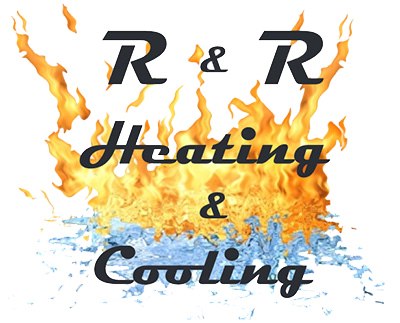R & R Heating & Cooling LLC
Expert Answers to Your Heating & Cooling Questions
At R & R Heating & Cooling LLC, we believe that informed customers make the best decisions for their home comfort. Below, we've compiled answers to the most frequently asked questions about HVAC systems, maintenance, and energy efficiency. If you have additional questions, feel free to contact us or schedule a consultation.
Recently Asked Questions
General HVAC Questions
What is the average lifespan of an HVAC system?
Most heating and cooling systems last between 10 to 20 years, depending on maintenance and usage. Over time, efficiency declines, leading to higher energy bills and more frequent repairs. If your system is over 10 years old, upgrading to a newer, energy-efficient model could lower your costs.
Why is regular HVAC maintenance important?
Annual maintenance helps prevent costly repairs, improve efficiency, extend equipment life, and ensure your system runs smoothly. Neglecting maintenance can lead to reduced performance and unexpected breakdowns.
What should I check before calling for HVAC service?
Before calling, try these quick troubleshooting steps:
- Ensure the thermostat is set correctly to heating or cooling mode.
- Check your air filters for clogs.
- Inspect your circuit breaker and reset if necessary.
- Make sure all vents and registers are open and unobstructed.
If these don’t solve the issue, call us for professional service.
Air Conditioning FAQs
What SEER rating should I look for in a new air conditioner?
SEER (Seasonal Energy Efficiency Ratio) measures cooling efficiency. The minimum SEER rating is 14, but high-efficiency units offer SEER 16–22, providing better performance and lower energy bills.
Will a larger air conditioner cool my home faster?
Bigger is not always better. Oversized systems cycle on and off too quickly, failing to remove humidity efficiently. A properly sized unit provides better comfort, efficiency, and longevity.
How often should I replace my air filters?
- Standard filters: Every 1-3 months
- HEPA/high-efficiency filters: Every 6-12 months
- Homes with pets/allergies: Change more frequently
Heating FAQs
How often should I service my furnace?
Your furnace should be serviced once a year, preferably before the cold season begins. This ensures efficiency, safety, and reliability.
Why does my furnace keep turning on and off frequently?
This could be caused by:
- Dirty air filters restricting airflow
- Improperly sized unit cycling too fast
- Malfunctioning thermostat
- Blocked vents reducing circulation
Heat Pump FAQs
How does a heat pump work?
A heat pump heats and cools your home using refrigerant to transfer heat. In winter, it pulls heat from outside air (even in cold temperatures) and moves it indoors. In summer, it removes heat from your home, keeping it cool.
Why is my heat pump blowing cool air in heating mode?
Possible reasons:
- Defrost mode is running temporarily
- Low refrigerant levels
- Thermostat settings need adjustment
- Dirty coils or air filters
If the problem persists, contact us for service.
Indoor Air Quality FAQs
What can I do to improve indoor air quality?
- Use high-efficiency air filters
- Install an air purifier to remove allergens
- Keep humidity balanced with a humidifier or dehumidifier
- Ventilate your home to reduce pollutants
How can I reduce allergens in my home?
- Replace air filters regularly
- Use a whole-home air purifier
- Keep humidity levels between 30-50%
- Schedule duct cleaning every few years
Energy Efficiency & Savings FAQs
How can I lower my heating and cooling costs?
- Upgrade to an energy-efficient system
- Set your thermostat wisely (lower in winter, higher in summer)
- Use a programmable thermostat
- Seal windows and doors to prevent drafts
- Ensure proper insulation in your home
What is a programmable thermostat, and how does it save money?
A programmable thermostat adjusts temperatures automatically based on your schedule, reducing energy waste when you’re away or asleep. This can cut heating and cooling costs by up to 10-20%.
Water Heater FAQs
How long do water heaters last?
Traditional tank water heaters last 8-12 years, while tankless water heaters can last 20 years or more with proper maintenance.
How do I know if my water heater needs to be replaced?
- Rust-colored water
- Leaks around the base
- Inconsistent water temperature
- Strange noises from the tank
Are tankless water heaters better than traditional ones?
Tankless water heaters provide endless hot water, higher efficiency, and longer lifespan, but have a higher upfront cost. They are ideal for homes with high hot water demand.
HVAC Financing & Rebates
What financing options are available for HVAC systems?
We offer financing through GreenSky, FTL Finance, and Synchrony Financial, making it easier to invest in an efficient HVAC system without upfront costs.
Are there tax credits or rebates for installing energy-efficient HVAC systems?
Yes! Many Energy Star-rated systems qualify for federal tax credits and local utility rebates. Check with us for current offers.
Have More Questions? We’re Here to Help!
If you need expert guidance on HVAC systems, repairs, or energy efficiency, contact R & R Heating & Cooling LLC today! Our team is ready to help you with reliable service and expert advice.
